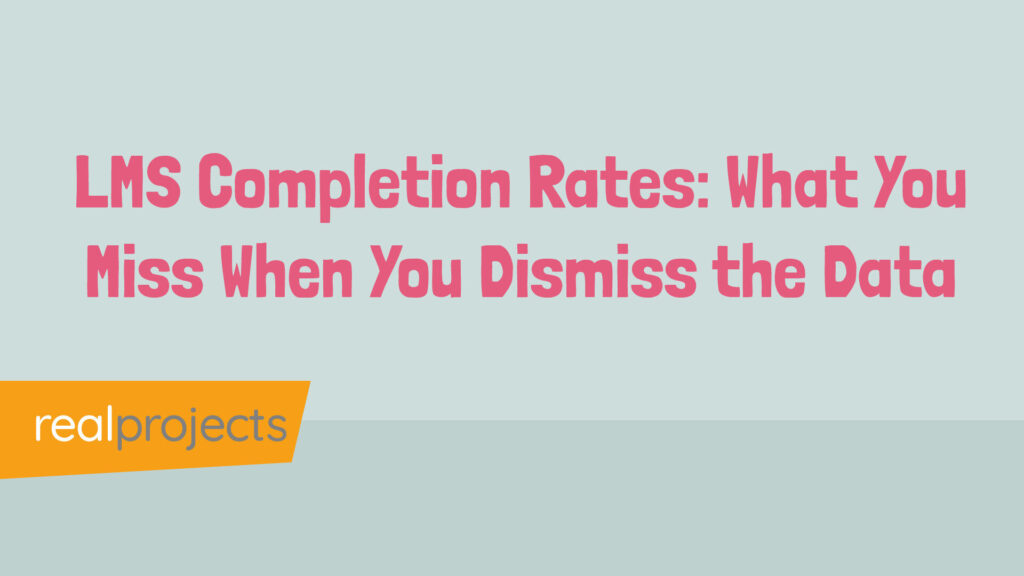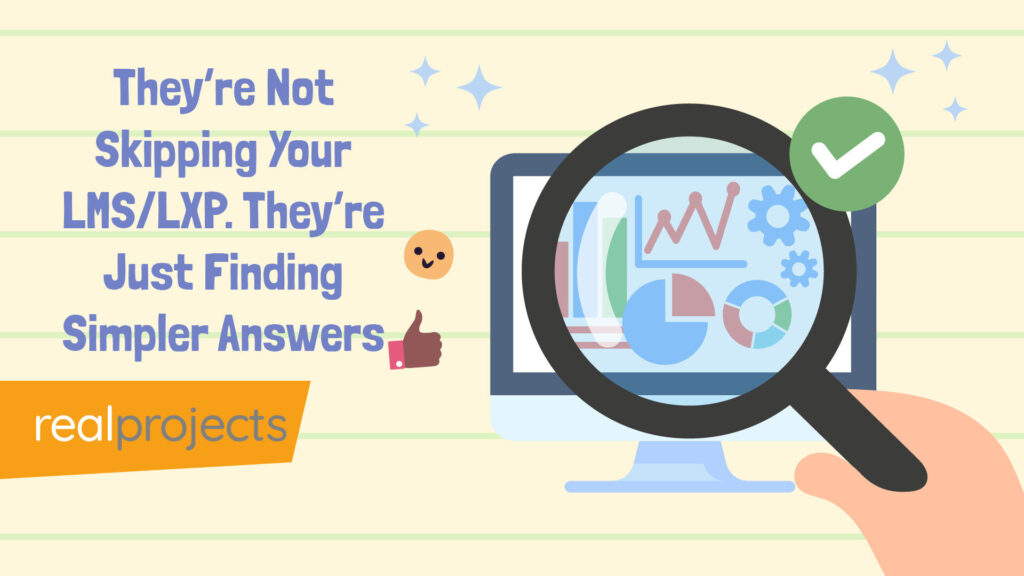Where do you start if you are looking for elearning courses? Finding the right elearning course can be overwhelming.
There are countless options, different pricing models, and varying levels of quality. Which provider do you use and how much should you pay?
Whether you’re an individual or a business, choosing the right course requires a strategic approach.
The wrong choice can lead to wasted time, money, and effort.
The Basics
- The elearning industry is growing fast, with businesses and individuals relying more on digital training.
- Businesses need courses that scale, integrate with their systems, and provide enough variety.
- Pricing can be complex, and many end up overpaying due to unclear models.
- A structured review process helps individuals and businesses find quality courses at fair prices.
How It Impacts You!
- For individuals, the challenge is finding a reputable course that meets their learning goals.
- Businesses need to evaluate providers based on content quality, scalability, and pricing.
- Poor decisions can result in wasted budgets, ineffective training, and low engagement.
How To Get Started
- Compare providers and read reviews.
- Look for simple pricing models.
- Request demos before committing.
- Ensure courses align with your learning needs and business goals.
The Smart Way To Find the Right Elearning Course
Ever tried to find an elearning course and felt overwhelmed by the sheer number of options? You’re not alone. Business and individuals can find it difficult to find the right course, whether they are looking for an elearning course library or an individual course? Where do you look and which provider should you look for?
You might not even know what an elearning content provider is? If this is the first time you’ve had to buy an elearning course you might not even know what type of courses are available, how much you might need to pay and how you can access the courses?
The elearning industry is growing at an unprecedented rate, with businesses and individuals increasingly turning to digital training solutions.
These are just some of the numbers:
- Global Market Projections: The global elearning market is expected to reach $374 billion by 2026 (elearningIndustry.com). The COVID-19 crisis accelerated digital learning adoption, leading to a surge in online education revenues (Reuters).
- Corporate Adoption: By 2017, 77% of corporations had already implemented elearning (elearningIndustry.com), with many experiencing over 100% growth in digital training segments during the pandemic (Reuters). Large enterprises have reported a 30–40% increase in digital course enrollments (The Guardian).
- Efficiency & Learning Outcomes: elearning can cut training time by up to 60% and improve retention rates by 25–60% compared to traditional methods (elearningIndustry.com). Studies show measurable improvements in employee performance (The Guardian, Reuters).
- Environmental Benefits: Online learning reduces energy consumption by 90% and lowers CO₂ emissions by 85% per student (elearningIndustry.com). Digital training also significantly cuts down travel-related emissions (The Guardian, Reuters).
Whether you’re an individual looking for a course to improve your skills or work in a business and you’ve been asked to source a course library for employees, navigating the world of elearning courses can be complex.
The process differs significantly depending on whether you’re looking for personal development or you are integrating elearning courses into an organisation’s L&D strategy.
Scott Hewitt asks: “Often, people don’t know where to look and don’t have a review process in place, they can end up with the wrong courses. Businesses, in particular, don’t always see the full breadth of the market. It’s bigger than they think, and they end up overpaying because they don’t fully understand what’s available.”
So, where do you start?
Individual vs. Business Course Searches
If you’re an individual, finding an elearning course is relatively straightforward, at least in theory.
You may be searching for a single course to gain a specific skill, complete a certification, or explore a topic of interest. You might be already taking a course and have been directed to a specific provider.
For example you could be taking a course in football coaching or football analytics and have been advised to take your courses from a provider like the Football Association or Analyisport.
In these cases, you don’t need an LMS (Learning Management System) or LXP (Learning Experience Platform). Instead, your focus is simply on finding the right course on the right platform.
Many professional organisations, such as The Football Association or UK Coaching, offer direct access to courses through their platforms. These are designed for individuals who want to sign up, log in, and start learning immediately.
But if you’re searching for a course independently, things can get a bit trickier. How do you know if a course is reputable? Where should you look?
For businesses, the challenge is even greater.
Once you’ve found where the courses are, it becomes a bit easier, you can then start working through the various providers and start deciding which elearning courses you are going to buy! If you are looking to buy a library you might find our complete guide on buying an elearning course library helpful.
It’s not just about finding one good course, it’s about selecting a scalable content library that aligns with organisational learning goals. You might already have access to a course library that has been bundled with an LMS/LXP and you are looking for more choices. Where to look?
You might be surprised to know that a lot of LMS/LXP providers now have their own marketplace where you can buy access to more courses and content.
Business needs often include:
- Scalability – Can the content meet the needs of multiple employees across different departments?
- Integration – Does the course content work with their existing LMS or LXP?
- Content Variety – Are there enough courses to cover various training needs?
Scott Hewitt asks: “To find the right elearning courses, businesses and individuals should have a clear review process. They should talk to colleagues, reach out to people in their industry, and look beyond what they assume are the biggest players. Most publishers supply the larger aggregators, but if you go direct, you’ll often get a much better deal.”
Where to Find Elearning Courses: A Guide for Businesses and Individuals
Elearning has become an essential tool for both businesses and individuals looking to upskill, improve performance, and drive career growth. Whether you’re searching for compliance training, leadership development, cybersecurity, or technical skills, finding the right course with the right level of quality is crucial.
The challenge? With so many options available, knowing where to look can be overwhelming.
The search process also varies depending on whether you’re an individual (B2C) or a business (B2B). Here’s a guide to help you navigate the elearning landscape and find the right courses for your needs.
Understanding the elearning Landscape
When looking for elearning courses, you need to first consider:
- Who is the training for? Individuals and organisations have different requirements.
- What kind of training do you need? This could range from off-the-shelf courses to custom-built solutions. You might need a mix of both.
- How will the content be accessed? Some platforms provide standalone courses, while others integrate with Learning Management Systems (LMS) or Learning Experience Platforms (LXP).
- What’s the pricing model? Options vary from subscription models to pay-per-course or site-wide access for large teams.
Once these factors are clear, you can start exploring different sources.
Where to Find elearning Courses
- Elearning Marketplaces (Best for Individuals and Professionals)
Platforms like Udemy, Coursera, and LinkedIn Learning offer thousands of courses across various industries. These marketplaces often include:- Course ratings and instructor reviews
- Certification options
- Regularly updated content
- Best for: Professionals seeking self-paced learning, career development, or job-specific training.
- Industry-Specific Providers (Best for Niche Training Needs)
Some sectors require specialist training that general marketplaces don’t cover. Industry-specific platforms cater to fields such as:- Finance (e.g., financial compliance courses)
- Healthcare (e.g., medical certifications)
- Retail & Hospitality (e.g., customer service and security training)
- These providers often align with industry regulations and job-specific skill development, offering case studies and accredited certifications.
Best for: Businesses in highly regulated or specialised industries. - Corporate LMS & LXP Libraries (Best for Organisational Training)
For businesses looking to train entire teams, many LMS and LXP solutions come with built-in content libraries. These platforms support:- Onboarding
- Leadership development
- Compliance training
- Popular LMS providers include Cornerstone and SAP Litmos, while LXP platforms like HowNow focus on personalised learning experiences.
Best for: Enterprises needing structured, scalable learning solutions. - University & Education Platforms (Best for Academic & Accredited Learning)
Platforms like edX and FutureLearn offer university-level courses, formal certifications, and even free content from institutions worldwide. These are ideal for those seeking long-term, structured learning paths.
Best for: Individuals looking for higher education-style learning with accreditation. - Bespoke & Custom elearning Solutions (Best for Tailored Business Training)
Sometimes, off-the-shelf courses don’t meet specific organisational needs. Custom elearning solutions allow businesses to create:- Company-specific compliance training
- Custom onboarding programmes
- Training aligned with internal processes and goals
- Providers like Real Projects specialise in building tailored content for organisations, supporting multilingual teams, accessibility, and interactive formats.
Best for: Businesses that require training unique to their company culture and objectives.
How to Choose the Right Elearning Course Provider
With so many options, selecting the right provider comes down to key factors:
- Content relevance – Does the training align with your strategy. Consider your learning or business needs?
- Course credibility – Who has developed the course? Is it developed by experts? Does it include accreditation?
- Engagement & accessibility – Is the course interactive, mobile-friendly, and inclusive? What are you looking for in the course?
- Pricing model – Is the pricing clear and easy to understand?
- Scalability – Can it be deployed across a whole organisation if needed?
- How Long? – Microlearning is now very popular. How long do you want your courses to be? Check out how long the courses are? Do you really want courses that are an hour long?
Finding the right elearning course depends on who the training is for and what the learning goals are. Whether you’re an individual looking for professional development or a business seeking training solutions, having a clear strategy will help you invest in the right provider and maximise the value of your learning experience.
If you’re searching for off-the-shelf content, custom-built training, or scalable learning solutions, consider exploring marketplaces, industry-specific providers, LMS/LXP libraries, universities, and custom elearning developers.
By understanding your needs and researching the right platforms, you can confidently select a learning solution that drives real results.
How to Find and Review Course Providers
With so many providers offering elearning courses, how do you make sure you’re choosing the right one? The answer: thorough research.
Do Your Due Diligence
- Check the provider’s website for essential details like terms and conditions, privacy policies, and contact information.
- Look for clear refund or cancellation policies in case the course isn’t what you expected.
- Don’t get confused by complex pricing models and pricing that jumps in Year 2.
Read Reviews
- Google reviews, LinkedIn, and industry forums can provide insights from past learners.
- If possible, ask industry peers for recommendations based on their experiences.
Request a Demo
- Many providers offer free course previews or trial access, allowing you to assess content quality before committing.
- It should be easy to get access to demo courses – you shouldn’t need to sign an NDA to see a demo course
Evaluate Course Libraries
- If you’re a business, compare your organisation’s learning needs against the provider’s full course catalogue.
- A provider might not have everything that you need – don’t be put off by this. There is no problem having more than one provider.
- Just because one provider has a list that covers all of your needs doesn’t mean it might be ideal – don’t forget to check out the quality of the content.
Scott Hewitt asks: “A big mistake is not having a review process and getting trapped in overly complex pricing models and contracts. This leads to overspending and a lack of flexibility in their learning options.”
Making the Right Choice
Choosing the right elearning course isn’t just about picking the first provider that appears in search results. It’s about aligning content with your goals whether you’re an individual seeking professional development or a business looking for scalable training solutions.
Scott Hewitt asks: “My main advice? Understand what you need. Write a list of your requirements and know your budget. Don’t get distracted by flashy marketing videos, do a deep dive so you’re not just being shown the best courses. You need to see the full picture.”
Frequently Asked Questions
What is the best website for online courses?
The best website depends on your needs. For professional development, platforms like Coursera and LinkedIn Learning offer recognised certifications. For corporate training, OpenSesame, Real Projects and Course Source provide business-friendly libraries. If you’re looking for tech skills, Udemy and Pluralsight are popular. Always check reviews before choosing.
What is the average cost of an elearning course?
How much does an elearning course cost? Well, prices vary widely. A short online course might cost £10–£100, while professional certifications can range from £200 to £2,000. Corporate training libraries typically charge per user, from £20 to £500 annually. Custom-built courses are much more expensive, often starting at £5,000.
Which platform is best for online classes?
It depends on your needs. Zoom and Microsoft Teams are great for live virtual classes. Moodle and Blackboard work well for structured academic courses. Businesses often use LMS platforms like Cornerstone or LearnUpon. For self-paced learning, Coursera and LinkedIn Learning are strong choices.



